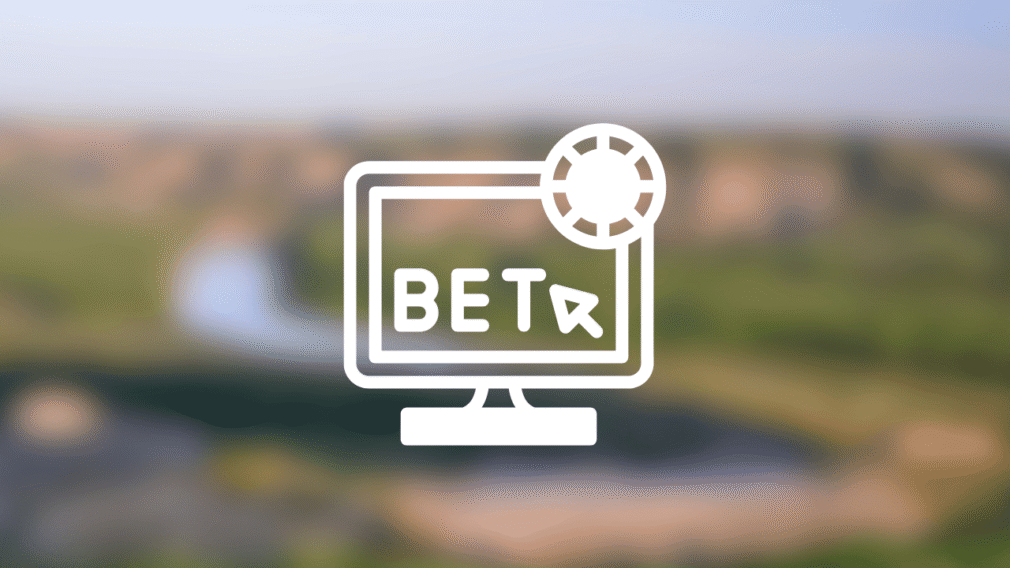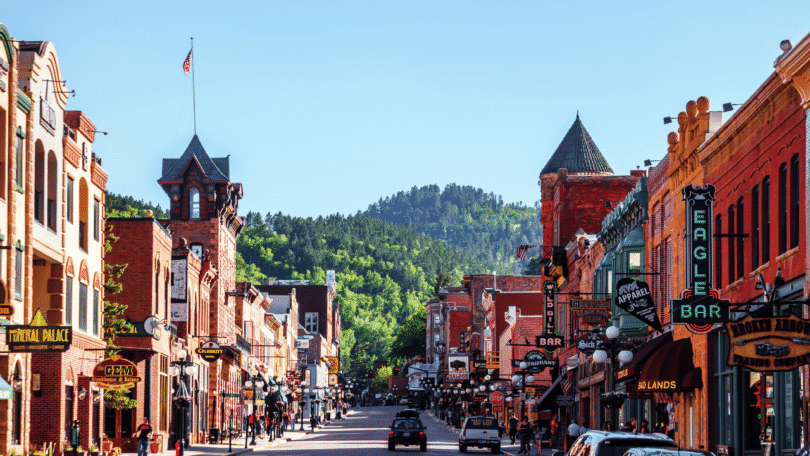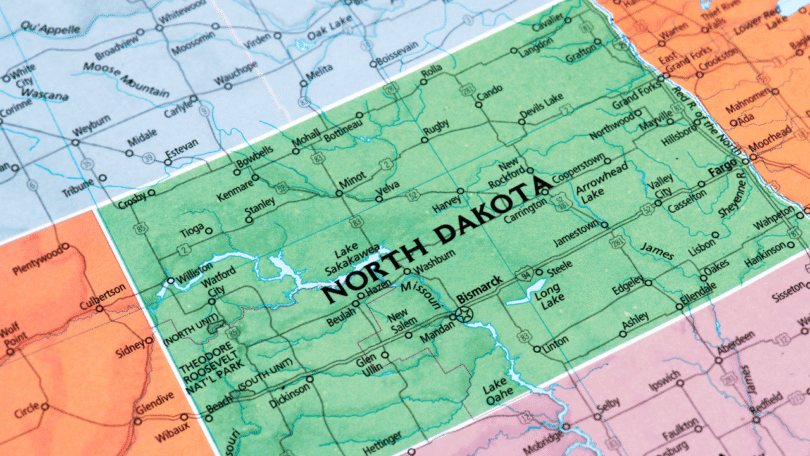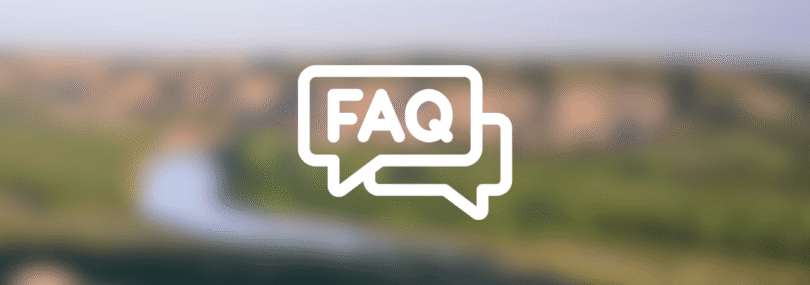Is Sports Betting Legal in North Dakota? Everything You Need to Know
North Dakota’s sports betting landscape stands out as a tribal-centric, retail-only market, distinct from the mobile-driven giants like New York or New Jersey.

With no professional sports teams, the state’s passionate sports culture revolves around the North Dakota State Bison football team and the University of North Dakota Fighting Hawks hockey squad, driving local betting enthusiasm.
Legal sports betting is confined to five tribal casinos, such as Dakota Magic and Spirit Lake, with no statewide mobile apps available.
This setup, rooted in tribal autonomy, creates a vibrant, community-focused betting experience but limits convenience for rural residents.
How Did Sports Betting Become Legal in North Dakota?
North Dakota’s sports betting journey began with the 2018 Murphy v. NCAA Supreme Court ruling, which struck down the Professional and Amateur Sports Protection Act (PASPA). PASPA, enacted in 1992, had banned state-authorized sports betting outside a few exceptions, like Nevada.
Its repeal empowered states and tribes to regulate wagering. In North Dakota, tribal gaming compacts from 2013, governed by the 1988 Indian Gaming Regulatory Act (IGRA), already included provisions for sports betting, contingent on PASPA’s validity.
When PASPA fell, tribes swiftly launched sportsbooks without needing new state laws. Spirit Lake Casino opened its sportsbook in November 2021, followed by Dakota Magic Casino in December 2021, marking the state’s first legal bet.
A 2021 legislative attempt (HB 1297) to legalize statewide mobile betting failed due to concerns over gambling expansion and tribal exclusivity.
Tribes, reliant on gaming revenue, opposed moves that could dilute their control. Additional bills, like HCR 3032, aimed for a 2022 referendum but were rejected by the Senate, citing risks to student-athletes and charitable gaming.
So far, no new laws have passed, and the legislature’s biennial schedule (odd-numbered years) delays further votes until at least 2027, with potential referendums not before 2028. North Dakota’s betting remains tribal-driven, leveraging IGRA’s framework for Class III gaming.
North Dakota Sports Betting Regulations
Sports betting in North Dakota operates under tribal oversight, with no statewide regulatory framework. Key rules include:
-
Age and Location: Bettors must be 21 (or 19 per 2022 compact updates, except for military ID holders at 18) and physically present at tribal casinos. Geofencing and ID verification ensure compliance.
-
Taxation: Winnings face a federal 24% tax for amounts over $600 and North Dakota’s 3.99% flat income tax. Tribes pay the state only for regulatory costs, not revenue shares, per compacts.
-
Betting Restrictions: In-state college team betting (e.g., NDSU Bison) is allowed, but prop bets on individual college athletes are banned to protect student-athletes. High school sports, politics, and entertainment awards are prohibited.
-
Federal and State Laws: The 1961 Wire Act bans interstate betting, and the 2006 UIGEA restricts illegal online gambling payments. Illegal betting carries state penalties of up to $1,500 in fines or 30 days in jail. Running unlicensed betting pools risks a Class C felony, with up to five years in prison and $10,000 in fines.
-
Tribal Oversight: Each tribe’s gaming commission regulates its sportsbook, with state inspection rights but no licensing fees. This contrasts with state-regulated markets like New York, ensuring tribal autonomy.
Geofencing systems, similar to those used by the North Dakota Lottery, block off-site bets, while encrypted accounts protect bettor data. These measures ensure a secure, controlled betting environment.
Recent Developments in North Dakota Sports Betting
- [January 29, 2025]: North Dakota Considers Shutting Down Gaming Commission
- [January 23, 2025]: North Dakota Rejects Online Sports Betting Bill
- [January 15, 2025]: North Dakota Considers Bill to Tighten Rules for Charitable Gaming
Top North Dakota Sportsbooks: Where to Place Bets
North Dakota’s sports betting is exclusive to five tribal casinos, each offering unique experiences:
-
Spirit Lake Casino (St. Michael): Launched in November 2021 with IGT technology, it features kiosks, betting windows, and a lively lounge with HD screens.
-
4 Bears Casino (New Town): Partnered with Bet365 and Elys Game Technology (since July 2023), it offers a Vegas-style sports bar with kiosks and large screens.
-
Dakota Magic Casino (Hankinson): The first to accept a bet in December 2021, it uses IGT’s betting tech and houses the Dakota Nation Sportsbook with giant screens and dining.
-
Sky Dancer Casino (Belcourt): Provides kiosks, live betting, and simulcast horse racing, enhancing its northern appeal.
-
Grand Treasure Casino (Trenton): Turtle Mountain’s compact venue offers a vibrant betting space with kiosks.
These casinos create immersive environments with real-time odds, dining, and social vibes. Over 80% of bets in 2023 were placed via kiosks, streamlining the process.

Daily Fantasy Sports (DFS) platforms like DraftKings and FanDuel operate legally in a “gray area” as skill-based games under UIGEA, unregulated by the state and separate from sports betting. Promotions, like free bets at 4 Bears or Dakota Magic’s Same Game Parlay Plus, boost engagement.
The lack of mobile apps limits accessibility, especially for rural bettors, pushing some to risky offshore sites.
North Dakota Sports Betting Options: What Can You Wager On?
Tribal sportsbooks offer diverse betting options:
- Moneyline: Bet on which team or player wins.
- Point Spread: Wager on the margin of victory.
- Over/Under (Totals): Predict if combined scores exceed or fall below a set number.
- Parlays: Combine multiple bets for higher payouts, like Dakota Magic’s Same Game Parlay.
- Prop Bets: Bet on specific game events, excluding college athlete props.
- Futures: Wager on future outcomes, like Super Bowl winners.
- Live Betting: Place bets during games for dynamic odds.
In-state college teams, like the NDSU Bison and UND Fighting Hawks, are popular, with no state ban on such bets, unlike New York’s restrictions. However, college player prop bets are prohibited to safeguard student-athletes.
High school sports, politics, and entertainment awards are off-limits, and esports betting is limited to offshore platforms. Popular markets include NFL (Minnesota Vikings), NHL (Minnesota Wild), MLB (Minnesota Twins), and NCAA football and hockey.
The retail-only model reduces betting variety compared to mobile markets but fosters a community-driven experience, especially for Bison games.
Economic Impact: How Sports Betting Benefits Tribes and North Dakota
North Dakota’s sports betting market, though small, supports tribal economies. No public handle data exists due to tribal reporting practices, but gaming revenue, including sports betting, contributed $3.4 million net in 2020.
Nationally, sports betting supports 216,671 jobs and $22.4 billion in GDP, suggesting local impacts. In 2014, tribal casinos generated 4,451 jobs and $73.1 million in payments to governments, with sportsbooks adding to hospitality and gaming roles in rural areas like New Town.

Tribal revenue funds healthcare, education, infrastructure, and charitable causes, promoting self-sufficiency and reducing reliance on state welfare. Casino tourism to venues like Dakota Magic drives local spending, with economic spillover benefiting non-tribal businesses.
Unlike New York’s $876 million in 2023 tax revenue, North Dakota collects only regulatory cost reimbursements ($261,128 in 2011–13), not revenue shares, per compacts. Mobile betting could yield $681 million annually, but the retail model preserves tribal control, balancing economic growth with sovereignty.
Offshore Betting Risks
Without statewide mobile betting, some North Dakotans turn to offshore sites like Bovada for convenience and broader markets, including cryptocurrencies. However, these platforms pose significant risks:
-
Legal Risks: Offshore betting violates state law, risking $1,500 fines or 30 days in jail, and federal laws (Wire Act, UIGEA) may lead to account seizures.
-
Financial Risks: Delayed or withheld payouts, unaudited odds, and no legal recourse threaten funds. Credit betting can lead to debt.
-
Data Security: Offshore sites lack U.S. data protections, increasing fraud and identity theft risks.
-
No Responsible Gambling Tools: Unlike tribal sportsbooks, offshore platforms offer no self-exclusion or deposit limits, heightening addiction risks.
Tribal sportsbooks provide audited odds, geofencing, and encryption, ensuring fairness and safety under tribal oversight. The state’s gaming division and tribal commissions reinforce consumer protections absent in offshore markets.
Responsible Gambling: Staying Safe in North Dakota
Tribal casinos prioritize responsible gambling with robust tools:
-
Self-Exclusion: Bans betting for 6 months to 5 years.
-
Deposit and Bet Limits: Caps on deposits, wagers, or session times at kiosks or windows.
-
Monitoring: Systems track betting patterns to identify risky behavior.
Support resources include 1-800-GAMBLER, the North Dakota Problem Gambling Program (701-328-8888), and groups like Gamblers Anonymous. In 2024, the state allocated $100,000 for treatment, with tribes contributing $25,000 annually per compact for addiction programs. The NCPG estimates 2–3% of Americans face gambling issues, though North Dakota-specific data is unavailable.
Practical tips for bettors:
- Budget 1–5% of disposable income (e.g., $10 of $200 monthly).
- Avoid chasing losses or betting under the influence.
- Take 30–60-minute breaks and track bets.
- Understand odds for realistic expectations.
- Engage in local activities like Badlands hiking or rodeos to balance betting.
Future of North Dakota Sports Betting
North Dakota’s betting market remains stable but limited. A 2025 referendum (HCR 3002) for mobile betting failed, and with the legislature meeting in odd years, the next vote isn’t until 2027, with referendums possible in 2028.
Tribes may launch on-site mobile apps, like Washington’s geofenced model, following 2022 compact updates allowing mobile betting within reservation boundaries.
In-state college betting will likely continue, though college player prop bans may persist due to integrity concerns, reinforced by NDSU’s ProhiBet partnership. Casino tourism to Spirit Lake and Dakota Magic sustains rural economies, but tribal exclusivity and legislative caution limit broader expansion.
Mobile betting could generate $30 million annually in taxes, but tribal opposition and conservative politics maintain the retail focus, preserving sovereignty.
Is sports betting legal in North Dakota in 2025?
Yes, at five tribal casinos since December 2021, but no statewide mobile betting.
Where can I place bets?
At Spirit Lake, 4 Bears, Dakota Magic, Sky Dancer, and Grand Treasure casinos.
Can I bet on NDSU Bison or UND Fighting Hawks?
Yes, but college player prop bets are banned.
What’s the minimum age?
21 (or 19 per compacts, 18 for military IDs), verified on-site.
What bets are available?
Moneyline, spreads, totals, parlays, futures, live betting; no high school, politics, or entertainment bets.
What are offshore betting risks?
Legal penalties ($1,500 fines, 30 days jail), payment delays, data breaches, and no responsible gambling tools.
Where can I get help for gambling issues?
Call 1-800-GAMBLER or the North Dakota Problem Gambling Program (701-328-8888).
Recommended

